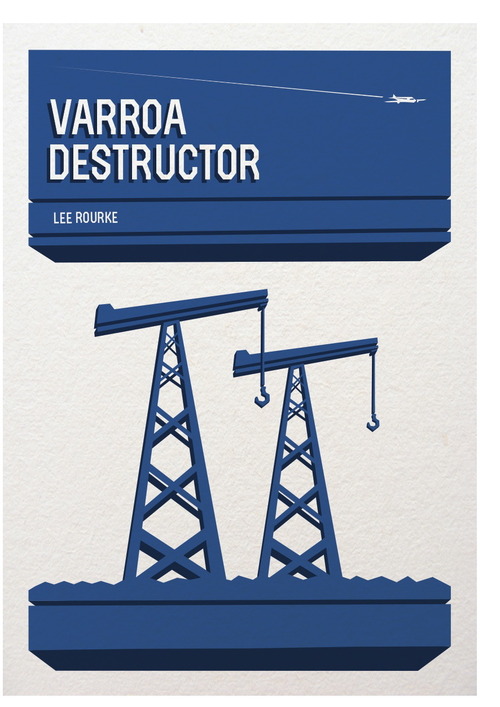Life in neo-liberal Britain can be a mechanizing, tedious and bland existence. The way we travel, tapping in and tapping out to the robotic voice of our station announcer. Jobs in our service industries are standardized, repetitive: we are paid for our boredom, but only if we appear excited in front of the client. We pepper emails with exclamation marks to show how exciting life isn’t and sign kisses to people we do not wish to kiss. Lunchtime sandwiches are cut to a perfect uniform size, sealed airtight and completely flavourless. The brandscape of our high streets is ever more homogenized – the same, familiar logos keeping us company all the way back home. At home we stare at the same screens we have stared at all day until we feel tired. Then we take our smaller screen to bed with us, tapping on it mechanically until our eyes start to droop and we wake up the next day to do it all again. We are suffering from a malaise, unique to modernity: a technologically driven, automated, shuffling state of boredom, reproduction and repetition that shows no sign of getting any more interesting.
The majority of us possess entertainment devices in our pockets, which we plug into every morning to dull our already dull commute to work and in the grey & glass office we have the Internet – the world’s largest, and deepest distraction machine. Screens flash adverts masquerading as mini-movies at us everywhere we walk. We can play unchallenging, yet reward-focused video games anywhere, at anytime. A culture dominated by the moving image coupled with a life dominated by mechanized movements means we no longer have the time, or the inclination to step away from our ennui. The result of this is that we become numb to some stimuli that are slightly harder work, non-linear or spontaneous. We work long hours for little reward and wonder why we hate our jobs, drink till we’re sick and secretly despise how dependent we are on the web to conduct our daily lives.
Yet in Lee Rourke’s new book, Varroa Destructor we are presented these pointless, everyday actions of our mechanized world in such a beautiful and eloquent way, that it is almost enough to think they are enchanting. It is sometimes hard to remember that the beauty and truth are within the writing, and not the objects of his examination.
Varroa Destructor is Rourke’s first poetry collection following on from his acclaimed and award winning debut novel, The Canal. In his new book, Rourke’s fractured, purposefully disjointed poems explore a mechanized, technologically dominated world with an eye for the minute and the meaningless. The collection follows a second person narration that, for the most part, documents the daily life of someone living and working in neo-liberal Britain. The poem, ‘Identification Card’ near the beginning of the book, provides a taster of what’s to come:
part of them—an arm opening a door—a finger pushing a button—
something handled with care—automated—it’s the un-questioning of
these moments that grieves you—when the time comes for you each
morning to take out your leather wallet containing your own
identification card and you stammer in some kind of slow misery and it
stays with you until the end of the day—it’s the un-knowing the mapping
of your repetitions that pulls you downwards—scrambling.
The daily involvement of technology blunting our reality features heavily in the first half of Varroa Destructor. Technology induces boredom wherever it goes. In ‘first communication in the morning is not an easy thing’, we see
one room to another from one city to the next—a faint melancholy of
disaster falling through space and time—binary in its nothingness
repeated until it becomes something of our lives.
‘and you know your real life will be online’ talks of ‘those stolen moments of miserable time when Facebook re-maps a life not worth speaking of’. Later in the book Rourke finds us, ‘Confined by clocks – ruled by their mechanisms,’ and decides that, ‘the drone of the air-conditioning unit—mechanised somehow—can be found the end of the day.’
There is a twinkling humour that runs through the book: a kind of funny nihilism through which Rourke brings a dark beauty to the mundane. Life outside of family and friendships can seem inherently pointless, but Varroa Destructor seems to, somehow, make these pointless things something to be interested in. The poems take our everyday lives, the things we do now, automatically as habit and reflect them back at the reader. Rourke invites us to question why we perform these routines and to see what beauty can be found within them. The bleakness and austerity of Rourke’s poetic voice allows the reader to see exactly what he is saying, without the poems being cloaked in ornamentation. It lets us see what effect technology has on our lives, to recognize it. Yes, Facebook is pointless and steals moments of miserable time. We know this, yet we still use it, fully aware of its kleptomania.
Further on in the collection, the effect of the daily mechanics explored during the first half through office and working life spill outside, away from the fluorescent lights and photocopier flashes. We find the narrator searching for something real, something tangible that isn’t automated, technical and self-moving. In ‘Sometimes, ambling along your doom-day stroll,’
are: rooted—cloaked in toughened bark—you watch the young women:
some jog alone—others stroll along with prams dogs.’
And in ‘When the rain comes and the park is empty’,
those like you seeking shelter—your mind quivering—nerves all shot—
malfunctioned and out of luck—as the rain soaks the mud bubbling at your
heels—all alone in slutch—aching to catch them fucking.’
There is a poignancy in this part of the book. Rourke seems to suggest that we are being pushed further and further away from reality, removed from the natural functions of the human mind, but against our wishes. The narrator seeks contact and empathy but has no idea how to find it, so he seeks to leer on those who are demonstrating a connection, like he would watch pornography or a reality television programme. Technology has caused a disconnect which is being filled in by false connections and fabricated relationships conducted through that very same technology.
On the other hand, the narrator suggests that ‘things are still the same, no matter how many times you look at them again’. We are told that there is a thought within us that, ‘things should become analogue again—manual—laboured—the machinery of function and practicality—rather than newfangled micro-wizardry: the clunk of clocking-in still intrigues you—the forceful thud of a stamp after inking its base on a pad.’ But, ‘even though you are bombarded with the assumption that everything is supposed to be better now—à la mode, easier—deep down you know that things are just the same.’
It appears that we have been suffering this disconnect for longer than we thought, perhaps since the birth of modernity and the emergence of mechanical technology in our lives. Even so, the collection seems to suggest that though the roots of our boredom may lie in modernization, we are perhaps reaching a point at which we have no control over technology; that it controls us. As Mark Fisher highlights in Capitalist Realism, ‘Borrough’s figure of the ‘Control Addict’: the one who is addicted to control, but also inevitably, the one who has been taken over, possessed by Control’, features heavily in neo-liberal societies. How Rourke interprets this, though, is through our addiction to technology. We have been taken over, and possessed by technology.
Rourke’s commitment to the everyday is so affecting because the world sold to us in other fictions and writing seems so distant from our lived experience. There is an over abundance of fictionalized aspirational narratives in society. We’re constantly told that if we work hard we will achieve whatever it is we think we want to, if we buy this we will be a certain person, if we do this we will get the perfect partner. Aspiration drives consumer capitalism and needs fictions to sustain its narrative. David Shields wrote in Reality Hunger that ‘people like real stories because there is nothing real about their lives.’ Shields seemed to be saying that in the modern world we live online, in fictions, as consumers and in products. Our own lives have so little reality in them that we hanker after true stories of death defying escapes and are fascinated with true crime or the truth behind celebrity relationships. However, Rourke’s writing counters this idea.
We often consume writing to help us escape from our mundanity, but Rourke shows us that our mundane lives are definitely worth exploring through art. Varroa Destructor makes the reader think about the minutiae in life, it forces the reader to step away from the habits and repetitions in their world and appreciate them, whether they are good or bad.

Varroa Destructor is available soon, published by 3am Press
Follow @theQuietusBooks on Twitter for more


